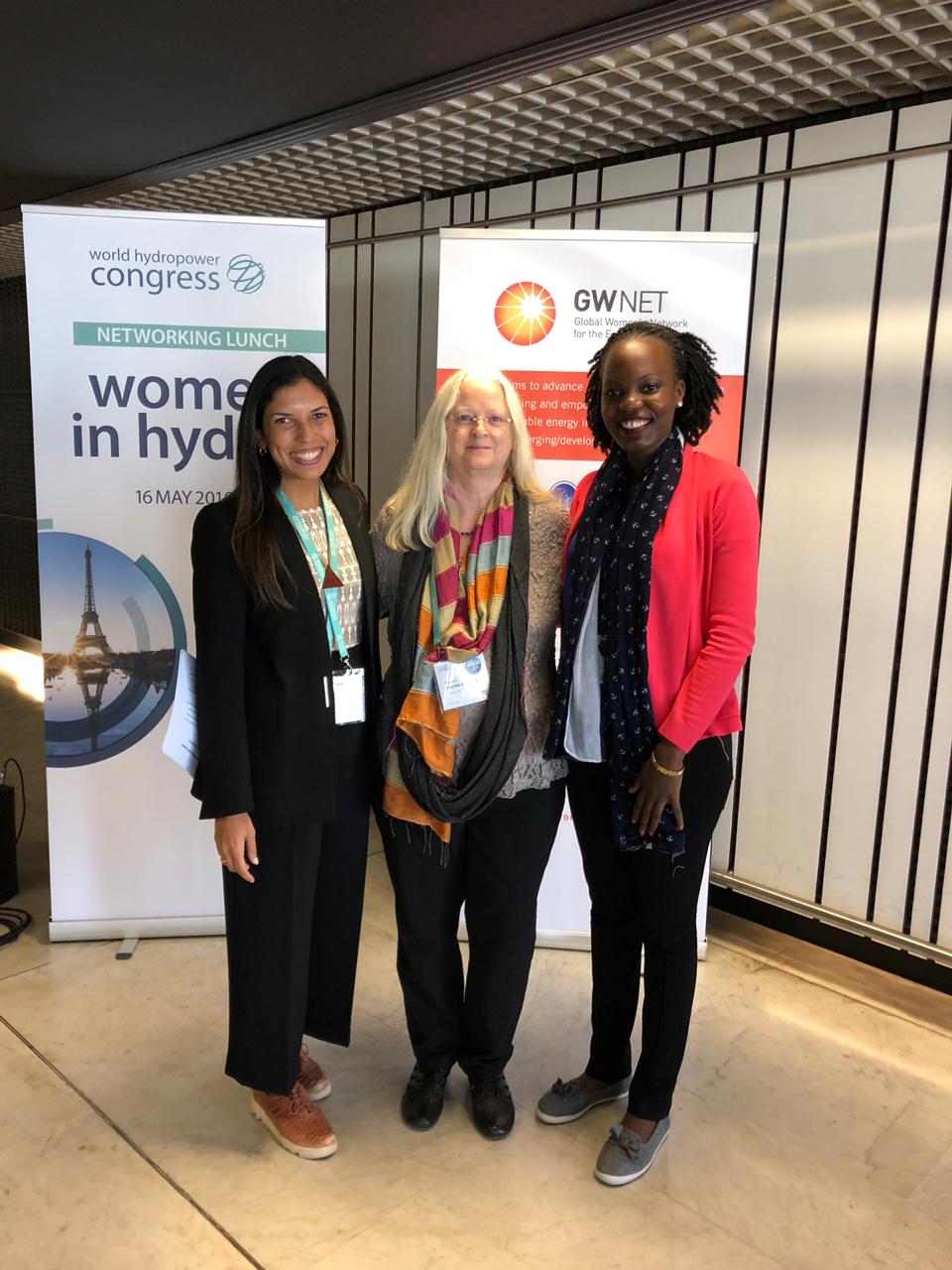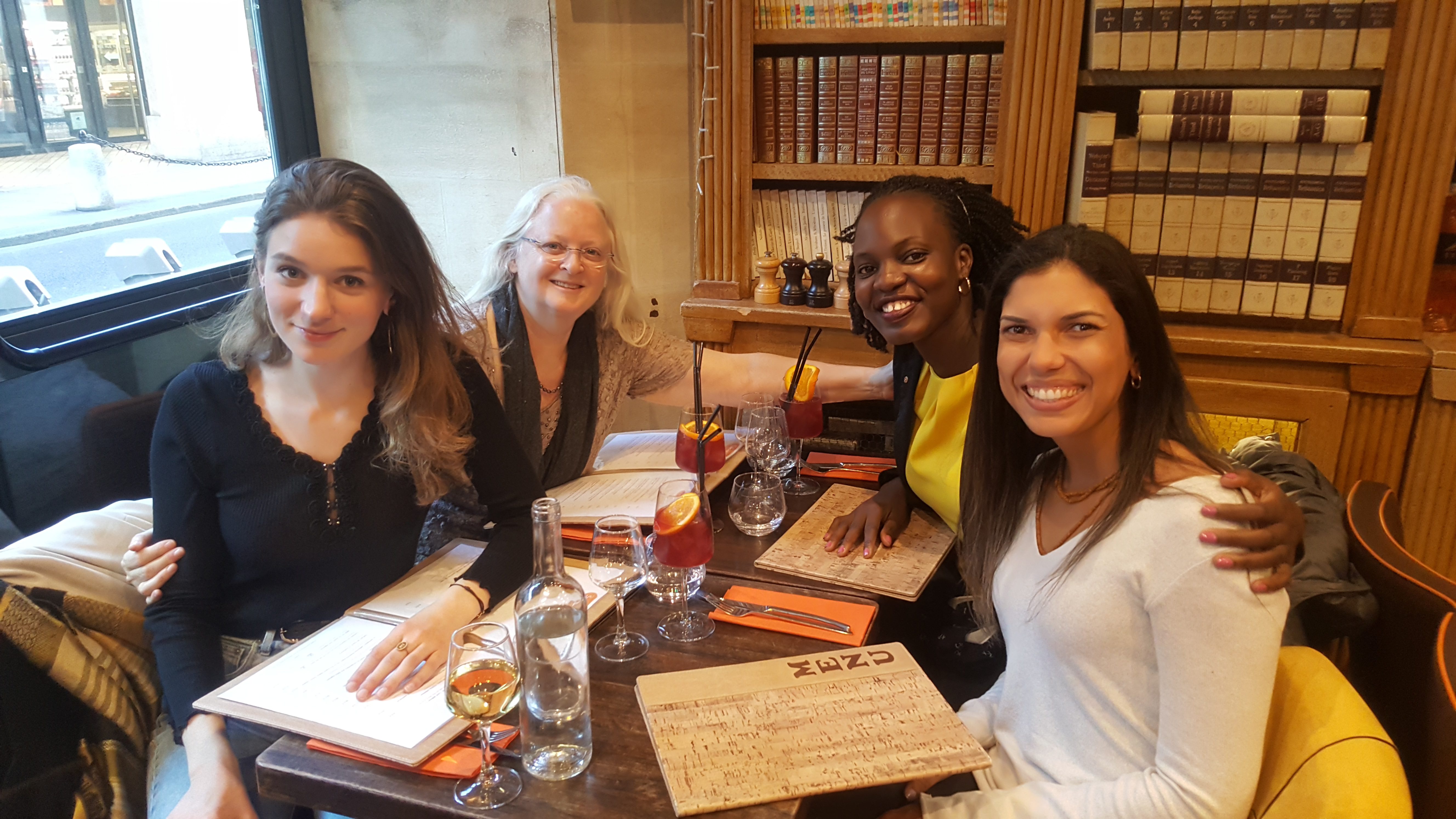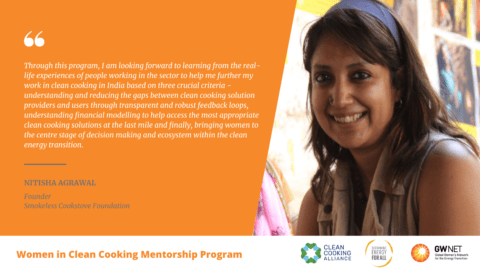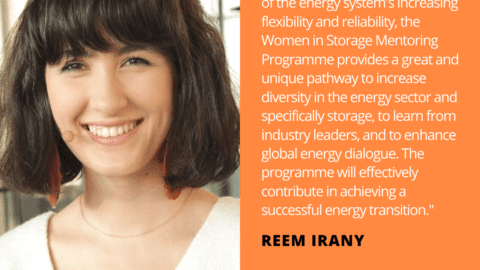GWNET brings you the 14th instalment of the “Meet the Women in the Energy Transition” series which celebrates the work and achievements of the women who are part of GWNET’s 2/2019 Mentoring Programme. This mentoring programme contains 22 mentee-mentor tandems, with mentees from over 15 countries. Meet GWNET mentor, Barbara Fischer-Aupperle. Barbara holds an Executive Master of Business Administration (Business Engineering and Change Management) from the St. Gallen University in Switzerland. She has over 30 years experience in the hydropower industry with expertise in various sales service functions, as Head of Global Communications and Head of Global Sustainability at Voith Hydro. In 2015, Barbara was awarded the “Woman with hydro vision” prize by Hydrovision International/Pennwell, in recognition of her significant contributions to improving and advancing hydropower. Today, Barbara uses her broad spectrum of knowledge in sustainability, her business acumen and experience, in combination with her industry insights, as an independent coach, consultant, mentor and speaker.
1) Tell us a little about yourself. What do you love most about what you do?
I work as a coach for various women cross-mentoring programmes and I also coach individuals for their personal and professional growth. At this time, I serve as a mentor at the St. Gallen University in Switzerland and at the University of Aalen in Germany, as well as being part of the US Women in Hydropower mentoring programme and the GWNET 2/2019 mentoring programme.
My most recent achievement is serving in the capacity as founding member of GWNET, where we aim to empower women working in sustainable energy, in all parts of the world.
My favourite parts of what I do include being connected to young(er) women; networking and supporting other women to network within their professional and private surroundings; as well as helping and encouraging women to find their own authentic path and create their desired work-life environment.
2) What were your goals when you started working in sustainable energy? Have these evolved?
It was always important for me to contribute to true sustainability, not only in energy, but also in the economic and social fields. Thanks to the Sustainable Development Goals, there are identified fields of action for the whole world to define and measure progress. We have a long way to go to achieve this development and experience a global transition. As we move forward each year, I see progress in political frameworks and corporate approaches, however, it is still very slow!
3) What are the opportunities for sustainable energy growth in your country?
Germany is considered to be a champion in the energy transition. However, I see this transition as happening too slowly, too reluctantly and with too little technical innovation and visionary thinking! There is too much lip service and not enough action to reach the targeted results!
 4) What challenges have you faced in the sector? Can you tell us how you overcame (or are overcoming) these challenges?
4) What challenges have you faced in the sector? Can you tell us how you overcame (or are overcoming) these challenges?
When I started out in in 1980 in a hydropower company, there were no jobs for women except as assistants, secretaries, translators, etc. In fact, the engineers were all men.
However, inter-cultural collaboration within a truly global corporation helped made it easier for women to climb the career ladder outside of engineering, but I perceive that the gender bias became more intense, as women came up to higher levels and begun competing against men.
Working hard at the expense of creating a work-life balance was in the DNA of this corporation. I made my way through with resilience and passion about the work that I was doing in international sales, communications, and sustainability. I also made myself heard and seen in some of the most crucial moments where new positions were out to be taken. I would still have liked to either have role models or female mentors to help me move forward with more self-assurance. This I had to build up myself.
Today, there are more female engineers coming into the sector, mostly in IT, less so in the classical engineering disciplines. However, the sector is still dominated by men who hardly recognise that functions like communication or sustainability are as equally value-adding to projects as their contribution.
5) Why did you join the GWNET Mentorship Programme? What do you hope to achieve?
I helped to found GWNET after I had retired from corporate life, because I wanted to create a global network for women in the sector to better connect, support, and learn from each other.
Today, as a coach and mentor, I support a series of young women in 5 different programmes. My main goal as a mentor is to assist women in a world that is still biased and gender imbalanced, so that they can make their way through and gain the self-confidence needed in their professional work, as well as in their private life.
 6) What advice would you give to women hoping to join the sustainable energy sector?
6) What advice would you give to women hoping to join the sustainable energy sector?
Work hard, present your talents, develop yourself constantly; do not forget or neglect to benchmark yourself especially for equal treatment in work and pay; play authentically, be self-confident, and love the work you do. It is a great sector, whose technology will contribute vitally to combating climate change!
If you are interested in knowing more about GWNET’s mentoring programmes, this comprehensive article outlines our work in this area.
Become a mentor – what’s in it for you?
GWNET is looking for senior professionals who are eager to make a difference and have a positive impact on a younger woman’s career in the energy sector. With the ever-changing dynamics of the business fields, digitalisation, knowledge and knowledge sharing has become more important than ever. As a mentor, you get the opportunity to give something valuable back to more junior professionals and to expand your own knowledge through your mentees’ perspective. Mentoring will contribute to personal and professional development for both you and your mentee, as well as, shaping the direction of future generations within your field of expertise.
If you are interested in volunteering as a mentor in one of GWNET’s mentoring programmes (which involves approx. 1 – 1.5 hours of engagement per month plus optional participation in knowledge-transfer webinars), kindly fill-in the Mentor Datasheet.











